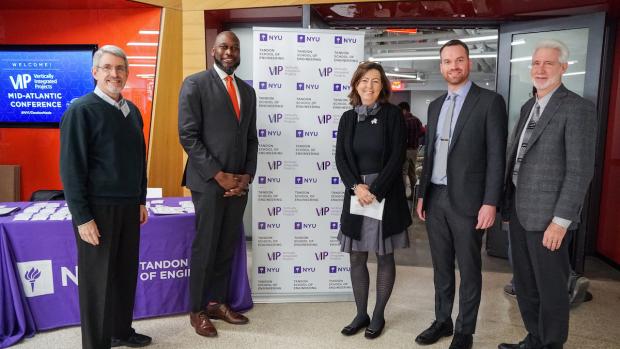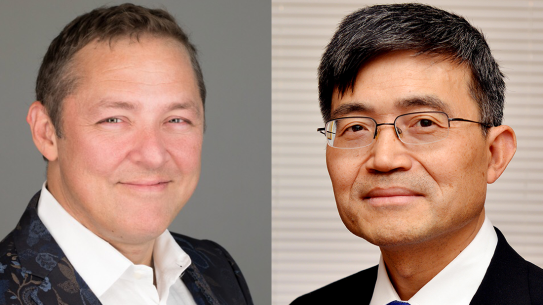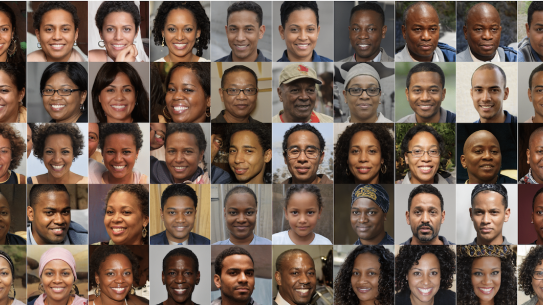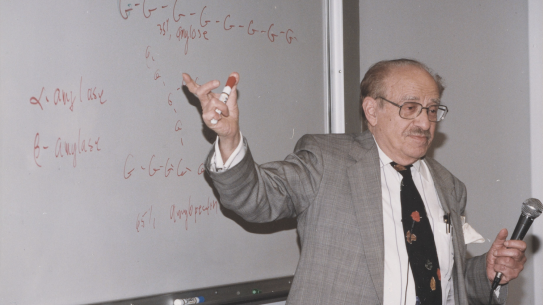Tandon Hosts International VIPs
Members of the Vertically Integrated Projects Consortium Meet in Brooklyn to Collaborate and Compete

In 2016, Dean of Undergraduate and Graduate Academics Peter Voltz asked himself how to ensure that Tandon students got the benefit of the type of long-term, in-depth learning that keeps them engaged and improves career preparation. What sort of outside-the-box curriculum wouldn’t be fragmented into years, semesters, or rote class periods, or slotted into rigid disciplinary silos?
He found his answer in the Vertically Integrated Projects (VIP) program, which has been deployed at various other schools around the world, including the University of Strathclyde, University of Pretoria, and Georgia Tech. On December 7, NYU Tandon had the honor of hosting the group’s 2018 Mid-Atlantic Region Conference, which found dozens of participants gathered in Brooklyn, at Tandon’s MakerSpace, to exhibit their projects, hear from their counterparts at other schools, and engage in a friendly competition for best ideas.
Students in the VIP program choose a hands-on project of real-world importance and work on it almost the entirety of their academic careers, earning credit each semester. Because the projects are multidisciplinary, students from all majors can participate, and because teams include everyone from sophomores to graduate students, a motivated person can take on increasingly responsible roles as their school years progress, tracing the trajectory they might take over the course of their professional lives. Tandon is now home to 19 VIP projects (a fourfold increase from back in 2016), and several more are in the works.
Dean Jelena Kovačević opened the event, saying, “We’re excited to be hosting the conference and even more excited, of course, to be part of this amazing consortium, which I truly believe represents a groundbreaking way to approach engineering education.” Explaining that at Tandon VIP encompassed everything from 3D-printing affordable custom orthotics for people with mobility issues to designing the transportation systems of the future. “I, for one, am looking forward to traveling from Central Park to Boston in about a half-hour for the price of a few MetroCard swipes,” she quipped.
Attendees also got to hear from Edward Coyle of Georgia Tech, who leads the Consortium and who explained its genesis. “Our goal was always to involve our entire campus in innovation, although I dislike the conventional definition of that as the development of novel products, services, and processes for the benefit of society,” he said. “That’s too narrow for our purposes, so I prefer to describe it as simply inspiration plus execution!”
Stephen Marshall had traveled all the way from Scotland, where he directs VIP at the University of Strathclyde. He confirmed that societal benefit was nonetheless a major component of VIP, with the vast majority of projects — whether intentionally or incidentally — addressing the U.N. Sustainable Development Goals. He described one project in which students designed and installed a system of solar lighting for a remote African village and said, “There are people who are alive because of VIP undergraduates.”
Also on hand to speak was Gregg Bishop, the commissioner of New York City’s Small Business Services, an organization dedicated to connecting New Yorkers to good jobs, creating stronger businesses, and building a thriving economy across the five boroughs. He pointed out that science and technology were important engines of the city’s economy, representing more than 300,000 jobs and some $30 billion in wages and praised the VIP program. “You’re teaching the skills now valued by employers and keeping the tech talent pipeline flowing,” he said. Dean Kovačević concurred, asserting, “Anyone looking to hire a graduate with the ability to collaborate in diverse, multidisciplinary teams; to problem-solve effectively; to manage projects or provide leadership, should look for a candidate who has participated in VIP.”
The biggest round of applause of the evening was heard when Voltz admitted, “The greatest contribution I’ve made to VIP at Tandon is to bring Jack Bringardner on board as co-director.” It was Bringardner, a professor of Civil and Urban Engineering, who had helped expand the program to its current size and who had organized the day’s conference. He also oversaw the VIPer Pit, the Shark Tank-like entrepreneurial contest that capped off the day.
Some teams in the VIPer Pit hailed from Tandon, such as Drocate, participants in a vertically integrated project devoted to smart cities technology who had created a drone that can aid in sea rescues, thanks to a proprietary library of thermal images. Others, like Hack RFML, developers of resilience improvement and performance quantification models for use in deep learning neural networks, came from further afield.
When winners were announced, Tandon’s students had acquitted themselves well: Maker Brace, a team creating custom 3D-printed orthotics for young patients, took home honors for best leadership and best display of entrepreneurship, while RePrint Bot, developers of an all-in-one unit that spins filament out of discarded plastic and uses it to 3D print, was deemed to be making the greatest social impact. A third Tandon team, PhytoPharm, which is engaged in genetically modifying bacteria in order to produce pharmaceuticals, garnered the award for best presentation skills.
Still, as Bringardner reminded everyone, it was all in good fun. “VIP is really all about collaboration, not competition,” he said.





